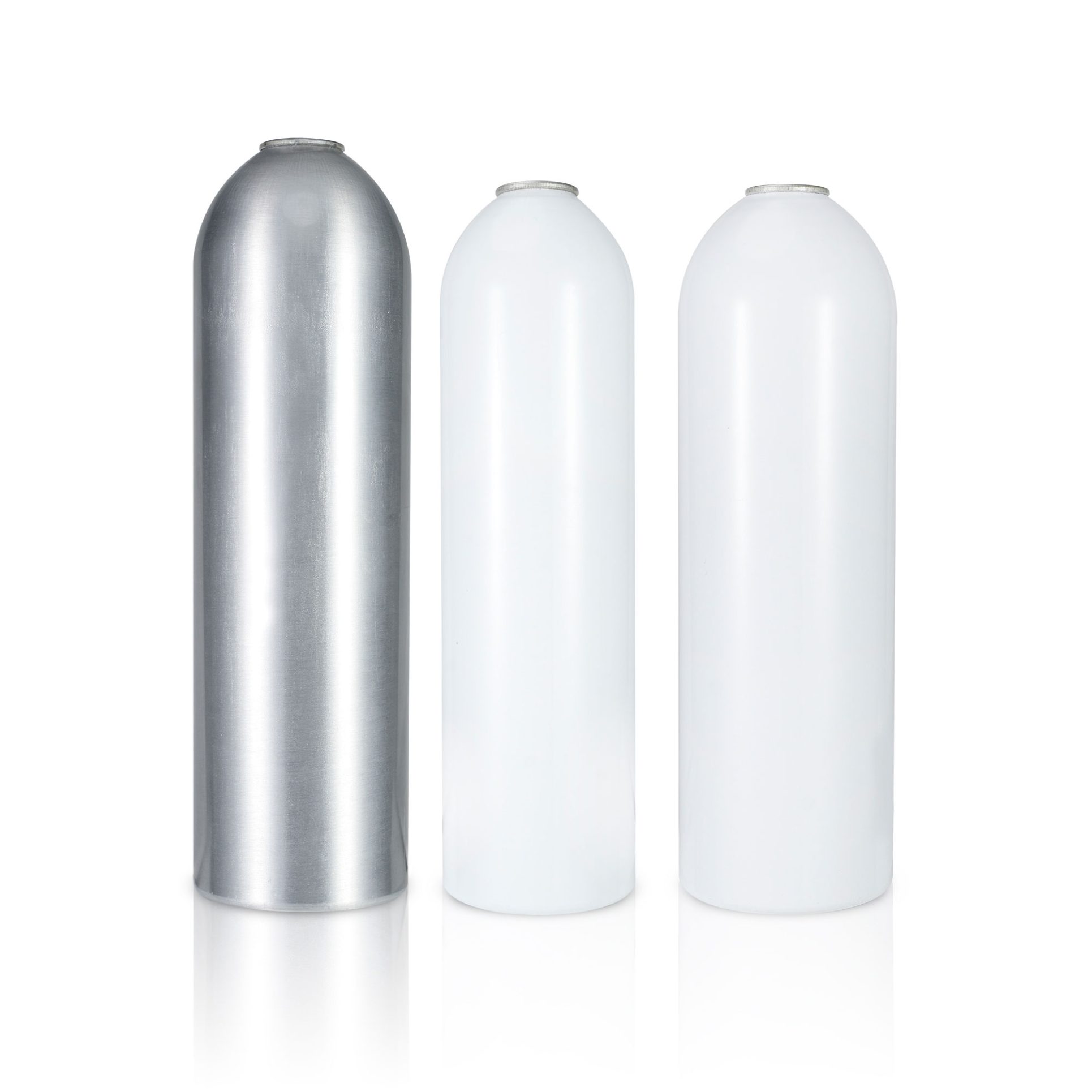Aluminum bottles offer a balance between durability, sustainability, and customization. Here are some key points about aluminum bottles:

Material Properties:
Aluminum: Aluminum is a lightweight metal known for its excellent corrosion resistance. It doesn’t rust, making it ideal for packaging applications.
Strength: Aluminum bottles are sturdy and can withstand pressure, impact, and external forces.
Advantages:
Barrier Properties: Aluminum provides an effective barrier against light, oxygen, and moisture. This helps maintain product freshness and extends shelf life.
Recyclability: Aluminum is highly recyclable, making it an eco-friendly choice. Recycled aluminum can be used to create new bottles.
Customization: Aluminum bottles can be customized in terms of shape, size, and surface design. You can add branding, labels, or embossing.
Versatility: These bottles are suitable for various products, including beverages, cosmetics, pharmaceuticals, and chemicals.
Applications:
Beverages: Aluminum bottles are commonly used for water, energy drinks, and alcoholic beverages.
Cosmetics and Personal Care: They’re popular for perfumes, lotions, and hair products.
Pharmaceuticals: Aluminum bottles protect medicines from light and moisture.
Industrial and Chemical: They store chemicals, oils, and industrial fluids.
Closure Types:
Screw Caps: Simple and widely used.
Spray Pumps: For perfumes and sprays.
Child-Resistant Caps: Ensures safety for pharmaceuticals.
Challenges:
Cost: Aluminum bottles can be more expensive than plastic.
Scratches: Aluminum surfaces can scratch easily.





